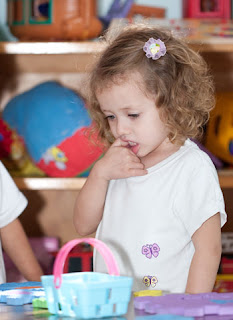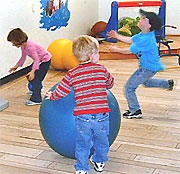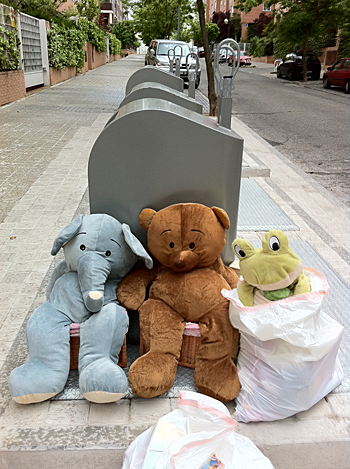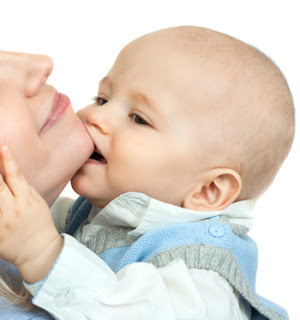Toys that are safe for children, Eight toys are safe for children
Just before Christmas the demand for toys is greatly increased. It is a magical time, filled with light, color, parties, family dinners and gifts, but can also be risks.
Not all toysprovide the same safeguards for children. It is important to know the main features expected of a toy that is safe for children, and how features vary by product and age of the child.
Safety standards for toys are dictated by the European Union, and last modified on 20 July 2011. As we approach the holiday season should be remembered the most important points of this law:
The toy safety
The best toy not always the most demanded by children. Sure, one must respect and consider their tastes, desires, but it is important that parents provide security for their children. It is important that to buy a toy, Parents read carefully the description of the game, observe what is done, and advise how to use the most appropriate toy.
The toys that violate safety standards, when used by children, may provoke asphyxia by the presentation of small parts, intoxication by inhalation of certain chemicals in paints and other materials, burns by some flammable materials, etc..
Generally speaking, violations of safety standards, often affect the design and construction, flammability, electrical safety, magnets, and the content of toxic substances, especially those imported from countries like China.
From now on we can be a little easier when it comes to toy safety, because the new law requires manufacturers to always include information on the place of manufacture, batch number and product ... and forcing committed to strict testing laboratories or agencies.
Thanks to the joint action of the European Union standards and proper supervision by parents, this year we can enjoy a quieter Christmas, always respecting the limits of recommended age of toys and instructions thereof. What are you waiting to write your letter to Santa Claus?.
Healthy Habits for children through toys
What are the current problems of children? How to deal with problems such as childhood obesity? What are some children need to receive a early stimulation? The answers to these questions can be found in two manuals that have just been published by the Research Association of Toy Industries .
With the first, "Games, toys and childhood obesity" is intended to prevent problems such as the childhood obesity, Creating healthy habits in childhood. Of what it is to apply the advances made by the toy industry to very child in society today. The second guide, "Games, toys and Early Intervention," provides information, advice and recommendations from the standpoint of early intervention for businesses to adapt, innovate and design new games and toys in order to not only prevent problems , as well as encourage the development and growth, and stimulation.
Both a guide like the other meet with a social function that links educational problems, social and health with the use of games and toys.
The guides, conducted a lengthy investigation by a team of experts, are aimed at parents, childhood experts, as well as manufacturers toys. Be released for free with a print run of one thousand copies. The association also offers some videos that teach, in stages, to stimulate babies and children under the age they are.
The best toys for disabled children
The game encourages and stimulates the physical and cognitive development the child, so it should be a universal activity for all children regardless of age, race, nationality, physical and social condition. The toy participates in a leading role in this practice, but little is known about the most appropriate toys for children who have some disability Either visual, auditory, motor or intellectual.
"Whatever the special needs the child present, the toy must not serve its limitations, but the possibilities and interests of the child. Should reinforce what the child can do to take on challenges".
The family plays a key role, in the case of children with disabilities, bridge becomes mediator between the toy and children. They are the parents who enhance initiative the child, we encourage and respect their pace, encouraging stimulus. Parents can adapt toys for your child to enjoy and take more out of them. To help with the choiceFrom the Association, we offer some guidance.
Toys for all children, disabled or not

1. For motor disabilities.Would be very interesting toys with parts fit easily, large structures that do not oblige when moving too fast. Should have easy access to their springs, keys or functions.
2. For the hearing impaired. Children with Impairment may be offered the same toys for any child: dolls, games, Skates, bicycles ... Depending on the degree of deafness of the child, we can choose toys with sound effects accompanied by vibrations, lights, movements. It's very interesting to have volume control or headphone output level to match the child's ear.
3. For visual disabilities. As in other cases, we must start with the limitation, for them it is important to facilitate the use of play and toys incorporating sound effects to parts and textures easy to identify by touch. Toys colors very bright or contrasting, who do not have small parts or Velcro, could be very stimulating.
4. For intellectual disability, the spectrum can be very broad, depending on the level. Toys for school use may be an attractive option, since they are designed to facilitate the learning.
Most importantly, for a child with a disability, is that it promotes inclusion and socialization through play with other children as well as understanding and mutual enrichment. It is very difficult to make standard games and toys for children with disabilities adjust to the specific needs and specific to each individual child, but from the Toy Manufacturers Association are committed to "Toys for All" So that when you devise and manufacture, are aware that any child can play with it.
It is very complex to create toys for each specific need, but you have to provide, from all areas, the full integration and development of children, whatever their condition.
What fate give the toys that your child does not play? The fate of used toys for children
This image, photographed in the street from my house, you can draw many conclusions ... What do an elephant, a bear and a frog sitting at the foot of a post office? Who have put there? Who owned these creatures so tender? Any child who, at one point slept with them, They had their secrets or shared with them their fantasies ... Years pass, children grow, overcome stage ... and toys end up being replaced and abandoned.
Recycle or donate toys, rather than abandon
Although the image awakened some tenderness, also gives a tremendous pity. It is hard to see that the stories of some movies as is the case 'Toy Story', Also replicated in real life.
I understand this may seem strange that children are looking for toys, when normally seeks toys for children, Right? But in the so-called 'first world', the toys are stacked in closets, shelves, and at times like this, on the street, abandoned next to a trash container.
I know what you "think" this bear, elephant and frog. What will be your fate? As you see, who has put there, I did not throw them away.
It may not have had no choice but to leave them there because maybe tried donate to an institution and was denied on the grounds that they could not accumulate to lead them to economically disadvantaged children.
Sometimes I took my daughter's toys, used and in a good state of these institutions and they said they could not retain it because it was not time Toy collection. Honestly, I can not believe that happens in the world in which we live.
On the other hand, I believe who have put these stuffed animals there was careful not to mix with the trash. Perhaps he did because he has not found a special container for toys, Right? Thinking about it, I think it would be nice to have a special container, only to toys And that a utility would be responsible for recycling and lead them to children who do not have the opportunity to have a toy. That would not be bad.
What fate could give the toys that our children no longer play? If there is any recommendation you would like to know. Maybe other mothers and fathers too. Something better to leave them outdoors. Something that could "save" the abandonment. I think we could do much about, right? Well, let me know.































